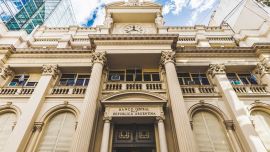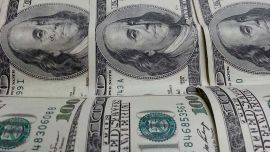Having opened its arms to the US dollar as an "escape valve" Venezuela is now trying to re-energise its own currency, which has been crippled by devaluation in recent years.
The aim is to incorporate US$3 billion circulating on the streets of the South American country into its financial system, but experts warn it is a risky gamble.
Distrust in the bolívar due to severe devaluations, demonetisation and four years of hyperinflation persists, despite a slow down in price rises and economic recovery following seven years of recession in which GDP fell by 80 percent.
The dollarisation, described by President Nicolás Maduro as an "escape valve," alongside an easing of price controls brought an end to the scarcity of bare essentials and the interminable queues for what little was available, such as a bag of rice.
"It's a risky bet with bad timing because the recovery is very weak and the economy is still suffering from chronic inflation. Not hyperinflation but still chronic inflation," Asdrubal Oliveros, director of consultancy Ecoanalítica, told AFP. "[Inflation is] very high for you ... [to be able] to re-establish confidence in the currency from one day to the next."
The latest move, applied at the end of March, was to impose a tax ranging from three to 20 percent on transactions using foreign currencies.
The government hopes to encourage use of the bolívar, which was also boosted by a massive injection of foreign currency into the market to stabilise the exchange rate.
The official exchange rate has only fallen from 4.18 bolívars to the dollar in October to 4.43, a depreciation of 6.7 percent, compared 76 percent last year and more than 95 percent in each of the three previous years.
Inflation ended 2021 at 686 percent, according to the Central Bank — the highest in the world but an enormous improvement on the preceding three years: 130,000 percent in 2018, 9,500 percent in 2019 and just under 3,000 percent in 2020.
'Different dynamic'
The government has recorded some successes in its policy to boost use of the bolívar.
The Superintendency of Banks said that since the imposition of the new foreign currency tax, online bolívar payments were up 21 percent and debit card payments increased 22 percent.
"We're entering a different dynamic," Henkel Garcia, director at consultants Econométrica, told AFP.
"Venezuela is currently a demonetised country. They are trying to remonetize it and to do so with bolívars .... Having your own currency gives you a scope to manoeuvre."
Outlawed for 15 years by state currency controls, the dollar became a refuge for Venezuelans during the economic crisis in 2019.
The dollar started being widely used when frequent nationwide power cuts made card payments and bank transfers impossible, as the bolívar's depreciation left the local currency in scarce supply.
Now, Ecoanalítica says almost 45 percent of urban commerce is done in dollars and 8.5 percent in Colombian pesos, a popular currency in border areas.
In 2021, foreign currencies made up 70 percent of the market.
"Four in every five [dollars] are outside the banks, the people have them in their hands, in businesses, in their homes. We're talking about around US$3 billion in circulation," said Oliveros.
If that money was put into banks it could boost depressed credit.
There are risks, however, not least the possibility of "slowing the advance of economic activity" given that dollarisation gave "certainty" to the private sector, said Oliveros.
'Tax? Bye-bye'
"They charged me the three percent in two places. I paid in dollars and they charged me the taxes in bolívars," said Maria Isabel Marcano, 48, after a shopping run.
Although the tax was implemented a little over a month ago, many Caracas businesses are still not applying it to foreign currency transactions, insisting they are still updating their systems. As an incentive, the government has offered loans to buy tax machines.
Not everyone is convinced, however.
"There are people who come and say to you: are you going to charge me the tax? If you charge me, bye-bye," said one merchant.
But others, like the popular Arturo's chain of fried chicken restaurants, say the new system is up and running.
The company has around 70 restaurants in the country, and says it only had to suspend trading for a few hours at the end of March.
"Now, everything is working normally," Laura Decena, the company's marketing director, told AFP.
related news

Report: Milei mulls right-wing summit as allies advance in Latin America

Rafael Grossi lays out bold reformist vision for troubled United Nations

World is 'ready' for a woman at helm of UN, says Chile's Michelle Bachelet

From the Andes to Darfur: Colombian mercenaries lured to Sudan's killing fields
by Esteban Rojas, AFP



















Comments